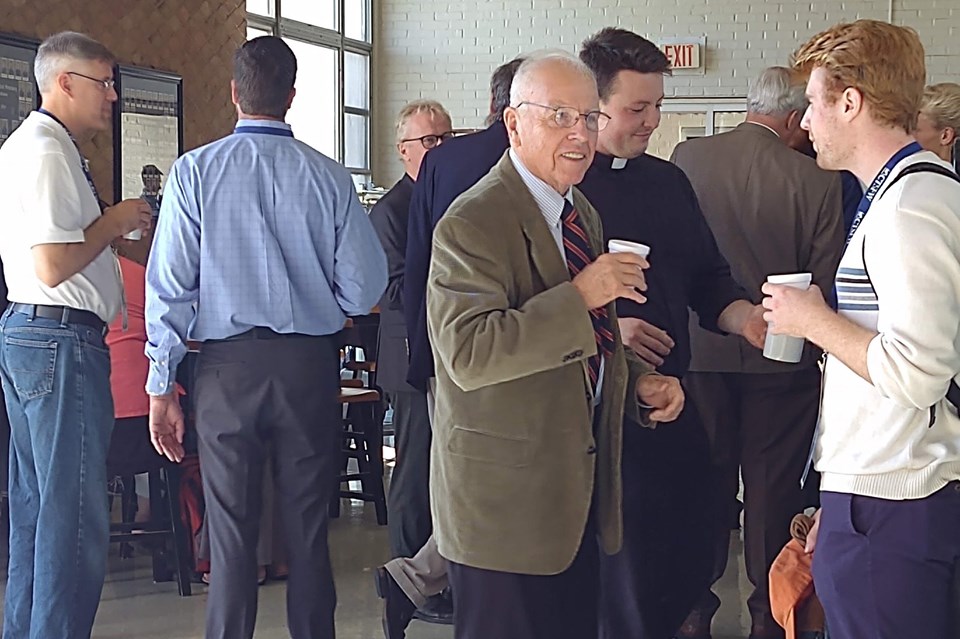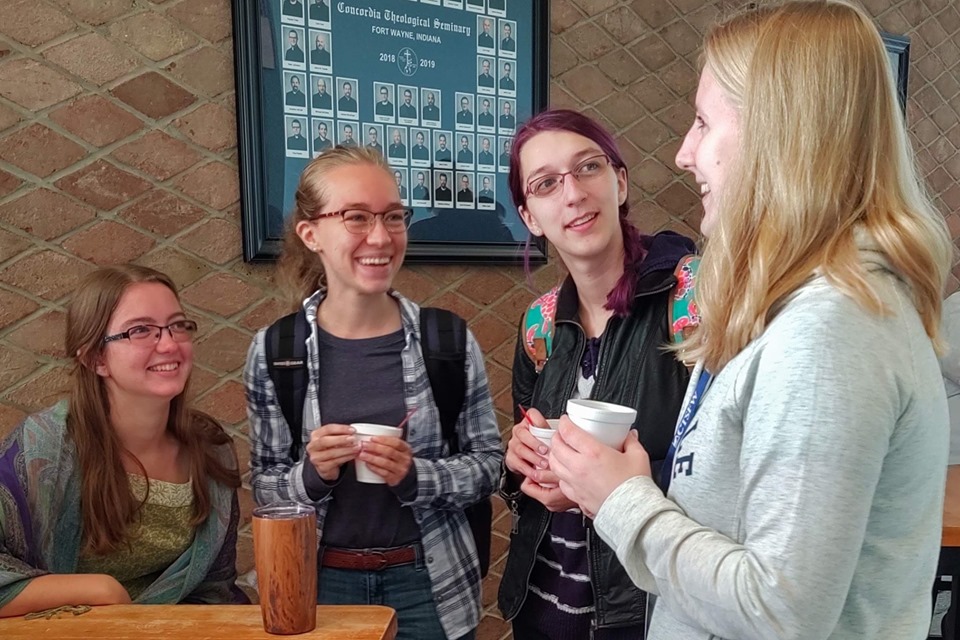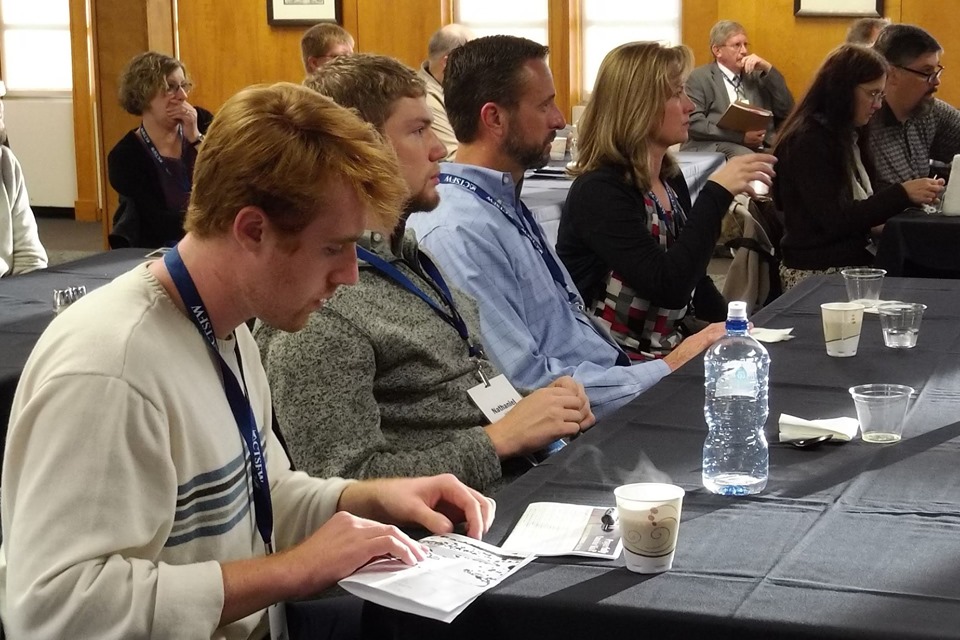
The Prayerfully Consider Visit (PCV) is a biannual event at CTSFW; you’ve likely heard us talk about it before. We hold this three-day visit for prospective students in both the fall and the spring, to give these men and women the time and tools they need during the discernment process as they consider whether a vocation as pastor or deaconess is in their future. About 30 PCV participants were with us from October 10-12, most of them pastoral program prospects with a few deaconess program prospects plus a handful of spouses. Spouses are always encouraged to come. They are absolutely a part of any future vocation—not just vital to the success of it, but truly a part of it.
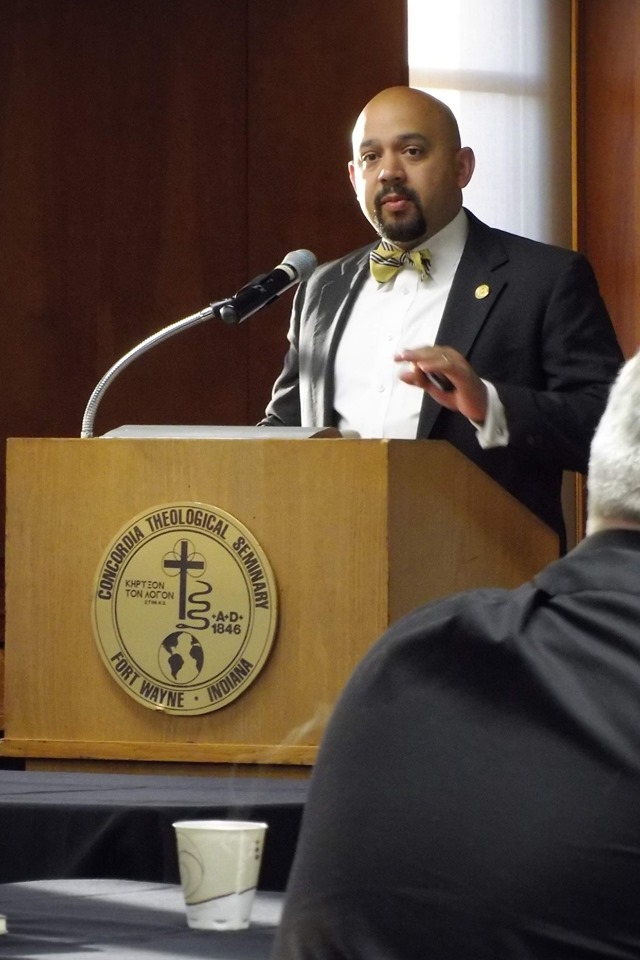
PCV began on Thursday with prayer in Kramer Chapel, then a welcome and orientation breakfast. Rev. Matt Wietfeldt, head of Admissions here at CTSFW, explained the purpose of these three days. “Take the name seriously,” he said. These men and women have taken time out of their busy lives to come to campus to consider these questions: will you become a pastor? A deaconess? Or is it better to remain in your current vocation?
By coming to campus, attendees share in the blessing of the CTSFW community. “We gather together first and foremost in worship,” Rev. Wietfeldt explained, describing the identity of the people who live, work, and study here. “We’re a community that is always in prayer. It is there [at Kramer Chapel] that we are formed and refreshed in the blood of the Lamb.”
He went on. “We are a community that is in study—but learning doesn’t just happen in the classroom.” Much of the formation process happens between classes, in the student commons or in the dining hall as classmates talk and debate and pull their professors into the discussion. There is no faculty lounge at CTSFW, so the professors are always with the students and available to them. “We are community about fellowship,” Rev. Wietfedlt finished. “It’s about being together as brothers and sisters, in worship and study but also as we lift each other up in good and bad.”
After his welcome, Rev. Wietfeldt had the participants stand and introduce themselves. Participants came from as close as the Fort Wayne area but also from Virginia, Albuquerque, NM, and Seattle. A handful were seniors at university (there aren’t usually as many college students at PCV during the fall as most of them attend Christ Academy: College at the end of the month) and plenty were second career from a variety of backgrounds. Some of these men and women are lifelong Lutherans, but others have come to us by much longer journeys, like the former charismatic who loves the scriptural doctrine of Lutheranism.
“I’m here to see if this is a fit for my life,” one participant explained. “It’s been in the back of my head for a long time.” Another participant knew he wanted to work for the Kingdom but hadn’t decided whether that would mean as a pastor; he’s here to find that out.
Still others know they’ll be starting in the fall. “I was 15 or 16 when my grandma told me: you should be pastor,” one prospect admitted. “I laughed but haven’t been able to get it out of my head since.”
One deaconess prospect explained that she was a teacher and felt that diaconal work seems very similar to what she was already doing. She simply wants to get stronger in theology. An undergraduate still in college said she had attended the high school program for Christ Academy and wanted to become a deaconess.
One of the attendees who has been thinking about becoming a pastor for the past thirty years recognized his thoughts in the words coming out of his fellow brothers’ and sisters’ mouths. “I wondered: gosh, am I the only one who grapples with these things?” He looked around the group, grinned, and answered it for himself: “Nope.”
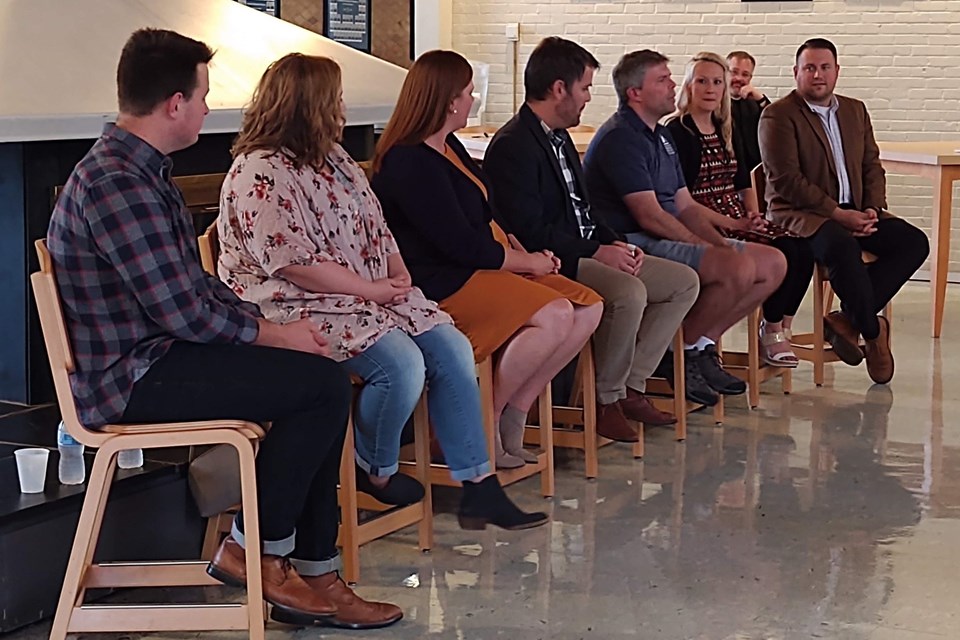
They would hear much of their thoughts echoed back to them later that evening, during the student panel discussion. The Admission Department had five current students (plus two spouses) answer questions about what their own journey was like. One couple, for example, attended 3 or 4 PCVs before they officially joined the CTSFW community. “We took our time,” he explained. “There was no doubt we were going to come, it was just a matter of when.” It took them about four years to work first through the discernment process and then prepare for the move. They had to uproot their family, and the couples’ own parents were worried. “They thought we’d be on food stamps.” Instead, that Christmas they came home with an abundance—fresh produce, given to them by the Food Co-op that they didn’t want to waste. “In the absence of truth, the imagination takes over,” his wife explained.
The transition was far faster for another couple. A Lutheran school teacher for ten years, the thought of becoming a pastor had always been with seminarian Aaron Schultz. “I felt a restlessness,” he explained, which grew alongside those long-held thoughts of becoming a pastor. He told his wife he finally wanted to go for it in October, and he was attending classes by the next September. She was on board from the first. “It was a quick process for us,” she explained.
Another student was a former Specific Ministry Pastoral program graduate, whose District President encouraged him to go back to Seminary to earn an MDiv so that he could serve full time. “I made a decision and went for it…God finds you and steers you,” he explained. “I had a lot of people praying for me. I’m not a lifelong Lutheran, and this doctrine is important to me.”
Second-year deaconess student, Anna Barger, is the daughter of a deaconess. So naturally: “No way, I thought. Not me.” However, she has long been interested in sign-language and, during a weeklong intensive course about the incredibly specialized vocabulary of signed liturgy, learned that 85-90% of the deaf community had no faith. “No one speaks their language,” she explained. “That didn’t sit well with me. I realized how much I took it for granted that I can go anywhere in the country—even the world—that I can sit in a pew and know what’s going on.” She gave in: she would become a deaconess, continuing to hone her skills in sign language alongside the specialized niche of theological language.
Another second-year seminarian came to us immediately out of college. Ethan Stoppenhagen has known his course for years. In high school, he explained to a teacher that he too wanted to become a teacher. “Why not a pastor?” she asked. His immediate response: “Well I can’t do that!” It stuck with him, though. He attended Christ Academy High School and by the time he was in college he knew exactly where he was going to go.
Rev. Wietfeldt summed it up well: “The discernment process is specific and unique because they’re all specific and unique,” he pointed out. Their ages are different, the length of discernment is different, and the transition process too is shaped by the individuals going through it.
Earlier in the day, Dean of the Chapel, Dr. Grime, had introduced himself to the participants of PCV as they began the three-days of discernment, speaking briefly on bringing Christ to a fallen world. “Into that hopelessness, you have interest in taking a sliver of that hope into a corner of the world. And it is a corner. Thank goodness we haven’t been asked to save the world.” And why are some called to these unique vocations? Or, in the words of the late Rev. Dr. Norman Nagel, “Why would you want to do it? Because it was given us to be done.”
